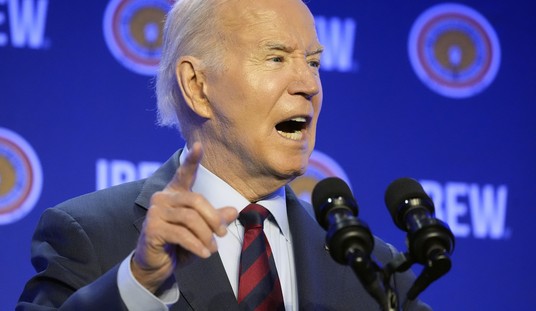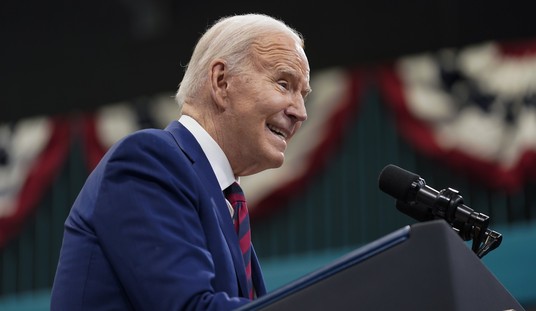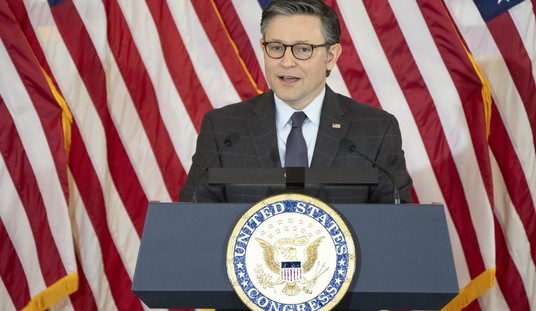
Why on Earth would we need Do Not Track legislation when many forms of tracking would be hard to define, but also when Tracker #1 is as popular as ever? This is yet another example where privacy is being treated as a morality issue, where legislators are scolding the public.
I mean look. Microsoft talked about making Do Not Track the default setting, but the public didn’t care. Only advertisers did.
It’s kind of hard to have a rational debate about Net Neutrality when the radical left keeps lying, and lying, and lying. They have to demonize Verizon because they don’t have the facts or the law on their side.
I have to say this Verizon story about a phone and the C block of spectrum (which Verizon is mandated to allow devices on freely as a condition of the auction Verizon won), it all sounds like a misunderstanding designed to whip up a furor against Verizon during this Net Neutrality push. This guy sounds like he’s actually not at all interested in getting a sim, but rather he’s trying to manufacture a Test Case. This is ideology, and not likely an actual problem. He hasn’t even gone to a store. He’s using Twitter.
Note that, yeah, Jeff Jarvis has been beating the drum against Verizon on Net Neutrality, so tell me this isn’t a conveniently-timed, manufactured ‘scandal.’
Of course, note that while the the rule requires Verizon not to restrict people from using the devices of their choice, and note, he took a SIM he had, put it in the tablet, and it worked. So he wasn’t actually restricted from using it. Sounds like a big old nothingburger to me.
I still think the National Retail Federation has totally botched the whole Internet Sales Tax fight. They overreached, they pushed poisonous rhetoric that divided the issue, and turned conservatives off on the issue. Bob Goodlatte may try in the House, but I don’t really see a chance the Senate bill passes at this point. There’s just too much opposition right now that I’m seeing.
Because I don’t really see people dropping the (in my view, questionable) taxation without representation argument based on these proposed changes since, you know, the Senate bill already had an exemption for smaller businesses, but that didn’t stop critics from saying that Grandma on Etsy would get hit.
They really ought to trash the Senate bill and start over with something a lot less far-reaching, and pass something that’s opt-in for the states, not something that tries to force states into the deal. There’s a legitimate issue here, but NRF has made it a too-transparent power grab and brazen attack on online competitors who, frankly, are whipping their tails in the free market.
More FCC? Steve Scalise and Jim DeMint once tried to pass some video reform, relating to Retransmission Consent which was the heart of the Time Warner/CBS fight, and from what I heard I was inclined to support that. However this idea I’m seeing that Scalise and Anna Eshoo are proposing, to insert FCC as a mediator in disputes, I entirely reject. The problem here, if there is one, is that there’s already too much regulation interfering with the private negotiation between cable companies and copyright holders. The solution is not more government. The solution is to repeal entirely the anti-cable rules that were put into place in the Cable Act, that were designed to give an edge to broadcasters. The whole rule was designed to tip the scales in favor of one business over another. Abolish it. Don’t add more government.
Look, let’s stop working with left Democrats on tech reform when it means growing government. Only work with them when it means increasing liberty.
For example, we should not pass any laws to punish Google for the failures of the RIAA and MPAA to innovate, as we have passed laws in the past to reward those industry associations. Google is working hard on their own to de-fund copyright infringers by refusing them ad money. That should be enough. It’s not Google’s job to be the Net Police.
Oh look, yet another Bitcoin and Tor driven criminal enterprise. A right to total anonymity, which keeps being pushed as an ideogically-driven part of the greater Privacy debate, is not something I’m sure we can support in a free society. Anonymity runs counter to the basic concept of personal responsibility, as it is invariably used by people who wish to do harm to others without taking responsibility. You can’t enforce people’s rights without order and the rule of law, and you can’t enforce order and the rule of law with anonymity. Bitcoin and Tor interfere with liberty.
Let’s finish tonight with a thorny issue: phone unlocking, which is where you take a phone you own that is locked to one provider’s network, and unlock it to run on other networks. This gives you more freedom in the marketplace, and enables you to get full value if you choose to sell your phone (I’ve done so myself, though AT&T actually made it very easy for me to do so). In theory it’s simple, but in practice it’s a messy thing, as unlocking is often tied by wrongdoers with copyright infringement, both in the distribution of unlocked firmware itself, but also in the use of unlocking combined with ‘jailbreaking’ which sometimes ends up being code for ‘running apps I didn’t pay for.’
But at the same time, phone unlocking is something we should be able to do. On a basic level, a thing we own, we should be able to modify. Which is why the Librarian of Congress, under the DMCA, previously ruled unlocking was specifically legal. Then the LoC (appointed in 1987) changed the rules and suddenly banned unlocking. Derek Khanna is out there making the case for why this is a problem Why the heck is the Librarian of Congress making this decision to begin with?
This is an example of where we can do narrow, targeted copyright reform that rationalizes the law, and brings the law in line with the public’s sense of fairness, which fundamentally strengthens the rule of law on copyright. We don’t need a comprehensive bill, since that’s what created this mess to begin with. We need to make one fix at a time.













Join the conversation as a VIP Member